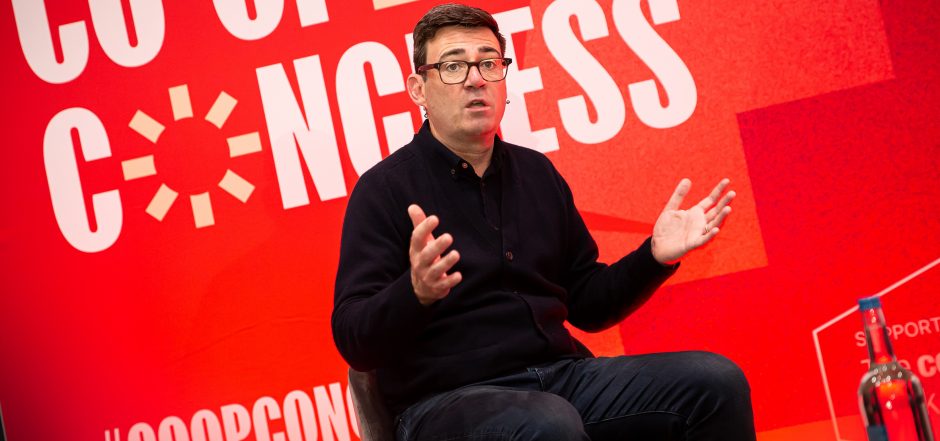In a recent report, Oxfam, a British charity dedicated to fighting poverty, raised the alarm about widening and extreme inequality, which, it argued, was enabled by corporate and monopoly power. To tackle this, the report outlines a range of measures to make the economy work for everyone, including calling on governments to use all their power to create and promote a new generation of companies that do not put shareholders first, such as workers’ co-operatives.
With a general election due this year, Co-operatives UK, the apex representing co-ops in the UK, is calling on all political parties to support co-ops and mutuals as business models that deliver economic growth.
“It is a general election year and the economy will be one of, if not the most important, issue for all political parties,” says Rose Marley, CEO of Co-operatives UK.
“The challenge is to convince voters they’ve got a credible plan for delivering economic growth that benefits people like them. So a plan that delivers more opportunities; better jobs; higher pay; decent homes; and thriving communities. And delivering economic growth needs to work in tandem with combating the climate emergency as well. Co-operatives – and mutuals – can help deliver this growth.”
Can the co-operative identity with its values and principles help bridge divisions in society? “Political parties can, and indeed should, unite behind the core principles of co-operation – of the co-operative identity,” says Marley. “Alongside our partners – the Association of Financial Mutuals, Building Societies Association, Association of British Credit Unions (ABCUL) and National Industry Liaison Group – we’ve launched a plan for delivering economic growth. It’s a plan that will unlock the massive potential of co-operatives and mutuals and upgrade the UK’s spluttering economic engine.
Related: With an election looming, co-ops fight for space on the political agenda
“When political parties back co-operatives and mutuals they’ll get plenty in return. We promise to deliver increased productivity; a fairer deal for customers; better and more secure jobs; more investment in communities across the UK; and societal action on climate change. The political landscape can be divided, but an economy that works for everyone is a vote winner and that’s what co-operatives and mutuals can help deliver. We’ll help the next government tackle the nation’s biggest economic, societal and environmental challenges.”
Many local councils are also embracing co-operative principles as a means to find better ways of working for, and with, local people for the benefit of their local community.
Sunderland Council leader Graeme Miller (Labour & Co-op) has been a councillor for South Ward since 2006, representing the residents of Ayton, Lambton, Oxclose and Rickleton. He says co-operative businesses in Sunderland have a strong network and track record of setting up and growing with support from the local authority.
Groups looking to set up a business can benefit from advice from Sunderland’s North East Business Innovation Centre Centre (BIC). Set up in 1994, BIC is the region’s largest business support agency. To date, it has supported over 4,000 businesses, leading to the creation of more than 7,500 jobs.
BIC was recently commissioned by Sunderland City Council as part of its Community Wealth Building Agenda to explore the social and co-operative landscape in Sunderland, map the type of co-operatives resident within the city, highlight best pratices and design a set of recommendations to help to “Reimagine Sunderland as a co-operative city”.
The report identified 48 co-operatives and 195 community interest companies across the city and suggested a range of measures to further support the sector, such as creating and facilitating a favourable ecosystem for co-ops to grow, raising awareness through a campaign to encourage creating co-ops and embedding co-op values in Sunderland, including in procurement processes and tendering.
“We’ve got a very good track record of setting them up with our Business Innovation Centre, which is a hub for co-operative businesses,” says Cllr Miller.
“We’ve got co-operative cafés, co-operative music shops, and co-operative horticultural businesses. We’ve got many types of businesses that the council has supported, enabling them and showing them how they can go forward as charities or as community interest companies or as co-op businesses, however they want to do it,” he adds.
Miller thinks co-operative approaches can also help to meet the council’s target of becoming carbon neutral by 2030.
“We’re trying to find out what is out there from the community, what businesses are out there, can we assist them? And do they have the ability to be co-operative in their approach? And I don’t see why anybody would ever say, ‘no’, all co-operative approach means is that we’re going to work with us for the betterment of all.”

The biggest challenge for his council is the government’s austerity policy, which means it “has to find another £51m between now and 2028.” He adds that his council has already lost £315m in funding over the last 14 years. He’s also frustrated by what he sees as central government’s tendency to make decisions without properly understanding the local context, and is calling for more ministers to visit and engage with the area to better support devolution.
“If they just turn around to me and say, ‘We’re not going to ask you for these cuts any more’, we’d be effectively be getting £51m back, which would be a massive pressure off my local authority, and every other local authority, because they’ll all have their own money,” he says.
Further funding from the central government towards the development of community assets would also be most welcome, he says, adding that local authorities should have more control over making their own money.
“What we’ve got to do is let councils have the ability to solve their problems,” he says.
With a North East mayor due to be elected in May, Miller says it will be important for whoever gets the job to work with the seven local authority leaders to deliver not only on their campaign promises but also on other issues affecting people in the region, such as public transport. He also urges counsellors to ask “stupid” questions in meetings to avoid missing important ideas.
Closer collaboration between councillors from different political parties is also beneficial, says Miller. The Co-operative Councils’ Innovations Network (CCIN), which he chairs, acts as a non-party-political active hub for co-operative policy development, innovation and advocacy.
“CCIN is a mix of political councils so we don’t allow politics with a big ‘P’ get in the way of what we’re trying to do to give better services to our residents across England and Wales,” he says.
Another local government leader who sees benefits in applying co-operative values in politics is Greater Manchester mayor, Andy Burnham.
In a recent address to members of Central Co-op attending a training session in Manchester, Burnham argued that there are reasons to be hopeful about the future of co-ops.
“This is the moment for a co-operative economy. And I think we should use that type of language to make clear the scale of change that we’re looking for,” he says.
“We feel what we’re doing in establishing more power at this level is actually fundamentally important to the country, and I think a big opportunity for the co-op movement going forward, because when you get power down to this level I think the co-op movement can tap into it more and we can build out more democratically controlled locally owned organisations. And that excites me I think more than anything right now.”

A former MP who held various ministerial roles, Burnham says he left Westminster due to being disillusioned with it.
“We’ve ended up as a country in a really bad place. And it’s why I think we need to rebuild from the bottom up.
“I left Parliament because I fell out of love with it and I’m not rushing back there for that reason,” he says, adding that “the system isn’t wired to support places like Manchester”.
Arguing that “building from the bottom up is much more satisfying”, he says the public wants real change.
Recent press reports suggest that the Labour Party plans to scale back on its promise to borrow £28bn a year to invest in a green industrial revolution if it wins the election. Burnham thinks the party should not only maintain its pledge but also use this opportunity to support locally owned, community-controlled energy schemes.
“Net Zero should be the route to a new economy,” he says. “And it should be a co-operative economy. It should be an economy where communities own the wealth and communities hold the levers of power to make things work for them. I feel more than ever that your time, our time has come.”
He mentioned the Co-op Live arena currently under construction which is due to open later in the year. Burnham thinks the arena, which is a joint venture between Oak View Group and City Football Group, Harry Styles and Co-op Group, will help to raise awareness of co-ops among young people.
“We need to find new ways of making the co-op movement relevant to young people today and I think music in this city can play a really big part of that,” he says.
Manchester City Council also got behind the Beyond the Music festival, an initiative of promoter and social enterprise founder Oli Wilson, backed by Co-operatives UK and other local partners.
“So there’s lots of really good things happening at the grassroots level,” says Burnham, “and, actually, even though these are tough times, I’m really hopeful of what lies ahead because I sense what the public mood is, they want some real change to happen. We can start to put co-op values back at the heart of things.”
He says Manchester’s bee symbol “stands for co-operation, for a place where nobody is more important than anyone else, that’s the Greater Manchester way. We do try and live that ethos in everything that we do.
“We’re one co-operative family. And I just think we’ve got to now be confident in stepping forward and saying, all of those big corporations, they had the answers of the past, the answers of the future lie in co-operation.”

